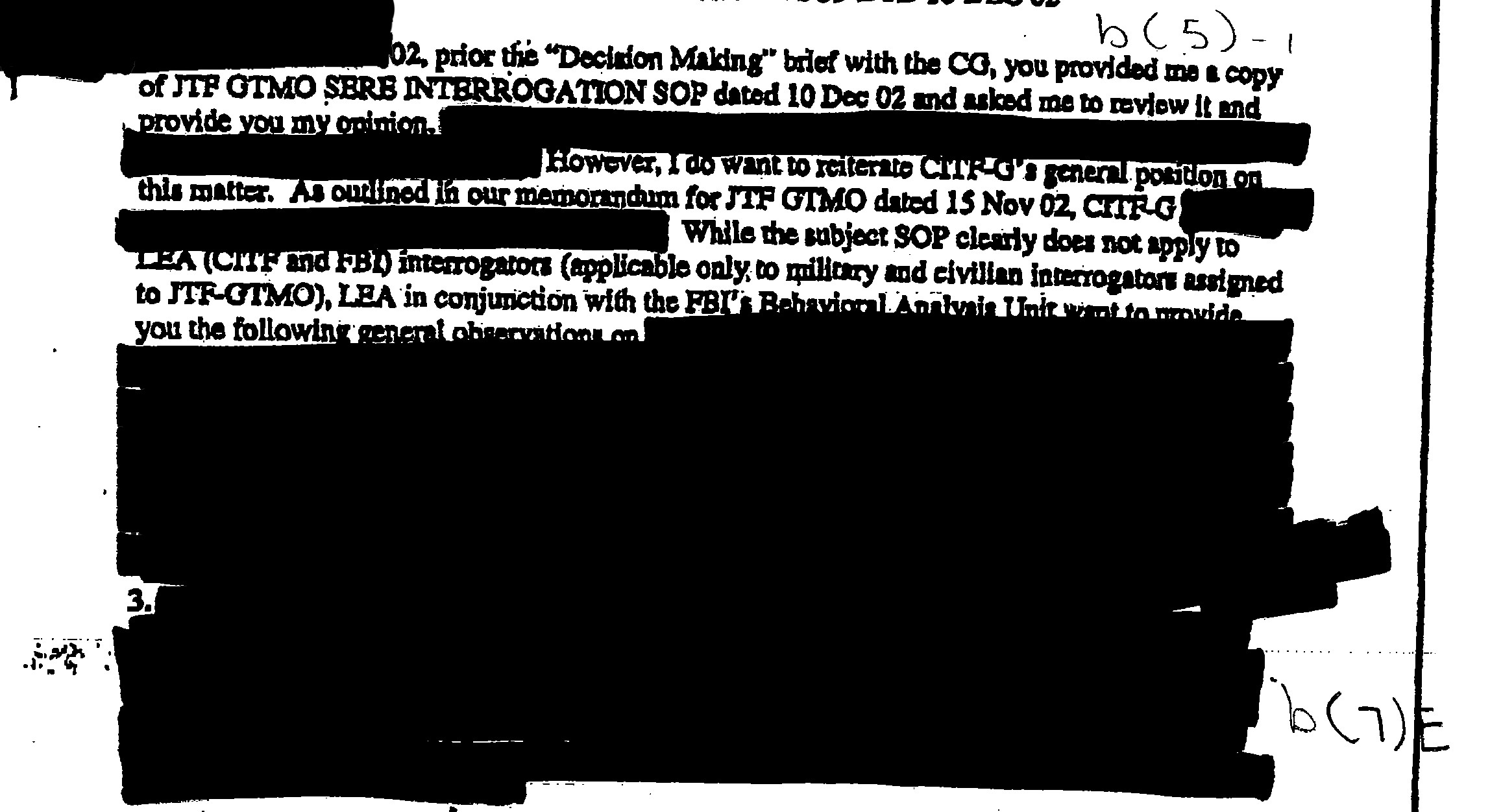Washington, DC — As reported in an exclusive report by Sam Thielman for The Guardian, a team of expert FOIA requestors and their attorneys has scored a major Freedom of Information Act (FOIA) victory against the FBI.
This victory has three key parts: i) The FBI must release documents about FBI FOIA searches; ii) The FBI may not unilaterally invent new FOIA exemptions, and iii) The FBI may not unilaterally decide which Bureau documents do and do not have value to the public.
The FBI has long been notorious for the frequent poverty of the document searches it performs in response to FOIA requests. The consistent inadequacy of the FBI’s FOIA searches has even led to the Bureau receiving an “award” for “worst Freedom of Information Act performance by a federal agency” from a leading open government group, as well as a declaration from the Associated Press that, “If information were a river, the FBI would be a dam.”
In order to document and challenge the FBI’s deficient FOIA search practices, the plaintiffs in this case, including MIT’s Ryan Shapiro, submitted FOIA requests to the FBI for documents about the FBI’s processing of specific FOIA requests. The FBI refused to release the requested documents, asserting the Bureau has a blanket policy against releasing documents about FBI FOIA searches unless those searches occurred over 25 years ago. The plaintiffs filed suit to challenge this policy. As Judge Randolph D. Moss (U.S. District Court for the District of Columbia) summarized in his recent ruling, “This is, in short, a case about how the FBI applies FOIA to FOIA.” As Judge Moss also made clear in his ruling, the FBI’s policy is “fundamentally at odds” with FOIA.
Judge Moss’ ruling is a significant win for transparency and government accountability not only because it forces the FBI to show its work regarding FBI FOIA searches, but because the ruling also shuts down two FBI attempts to radically enlarge the FBI and other agencies’ ability to withhold documents from FOIA requestors.
In order to justify the FBI’s refusal to release documents about the Bureau’s FOIA searches, the FBI argued in court that the Bureau should be permitted to unilaterally invent an expansive new exemption to FOIA. This proposed exemption, to be borne of the FBI and not of Congress, would have allowed the FBI to categorically withhold entire classes of non-exempt documents (such as documents about FOIA searches) in order to prevent the hypothetical possibility of inadvertently releasing a small amount of exempt information. The FBI’s proposed exemption would have been a serious blow to governmental transparency, as it would have essentially allowed the FBI to declare any record, no matter how mundane, to be secret. Judge Moss soundly rejected the FBI’s attempt, declaring it “fundamentally at odds” with FOIA, and that “the FBI cannot act on the basis of an exemption or exclusion that Congress has not provided.”
Further, in order to justify the FBI’s refusal to release documents about the Bureau’s FOIA searches, the FBI also argued that the Bureau should be permitted to unilaterally decide which FBI documents are of no interest to the public, and can therefore be withheld under FOIA Exemption 2. This would have permitted the FBI to withhold entire categories of important documents (such as documents revealing deficient FBI FOIA search practices) merely because the FBI itself asserts those documents to be of no public value. Judge Moss again rejected the FBI’s policy, and made clear that just because the FBI may declare records about FBI FOIA searches (or any other topic) to be without public value, this does not make it so. Ruled Judge Moss, “To the contrary, [these records will allow the requestors to] enlighten the public about how the FBI goes about satisfying its obligations under FOIA”, and therefore may not be withheld under FOIA Exemption 2 as having no public value.
The case is Shapiro et al. v. DOJ (Civil Action No. 13-555)(RDM)(USDC DC).
Ryan Shapiro, a FOIA specialist, is a PhD candidate and historian of national security at MIT. His pathbreaking FOIA work has already led the FBI to declare his MIT dissertation research itself a threat to national security. Shapiro is represented by Washington, DC-based FOIA specialist attorney, Jeffrey Light. Co-counsel in this case is FOIA specialist Kel McClanahan.
The other plaintiff’s in the case are Jeff Stein, who covers spy agencies and foreign policy for of Newsweek; National Security Counselors public interest law firm, and the news outlet Truthout (regarding FOIA requests submitted by Jason Leopold, now of Vice News).
According to Shapiro:
“In this case, the FBI sought an extremely dangerous expansion of its ability to circumvent FOIA. Judge Moss recognized this and struck down the Bureau’s attempted power grab, calling it “fundamentally at odds” with FOIA. Ruled Judge Moss, “The FBI thus asks the Court to recognize a new doctrine—akin to the Glomar and mosaic doctrines, but far more expansive in scope—that would permit it to withhold an entire category” of records not because FOIA permits such withholding, but simply because the FBI wishes to do so. However, as ruled Judge Moss, “the FBI cannot act on the basis of an exemption or exclusion that Congress has not provided.” In other words, the judge ruled the FBI may not make up new exemptions to FOIA simply because it feels like it.
“The FBI does nearly everything within its power to avoid compliance with the Freedom of Information Act. This results in the outrageous state of affairs in which the leading federal law enforcement agency in the country is in routine and often flagrant violation of federal law.
“The Freedom of Information Act is one of the most underappreciated elements of the entire American experiment. The notion that the records of government are the property of the people, and all we need to do to get them is to ask, is radically democratic. FOIA must not only be defended against the FBI and others who view transparency as a threat, but strengthened, and dramatically expanded. The viability of our democracy may depend upon it.
To arrange an interview with Ryan Shapiro, please email or text Andy Stepanian at andy@sparrowmedia.net or 631.291.3010. You can follow Ryan Shapiro on twitter at @_rshapiro




